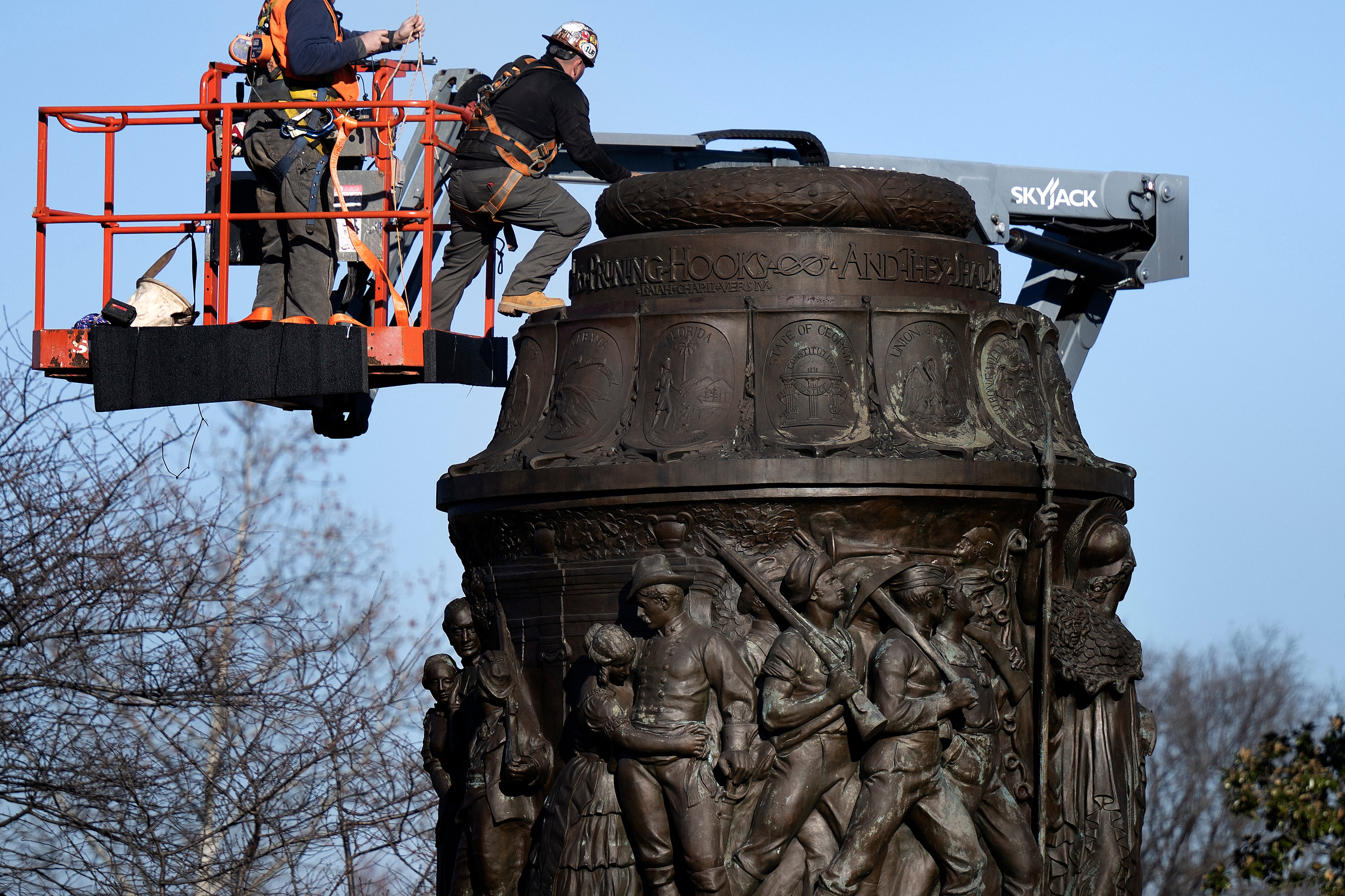Dems slam ‘shameful’ House Republicans who voted to restore ‘mammy’ statue in Arlington
Confederate monument was taken down in Arlington National Cemetary in December

Your support helps us to tell the story
From reproductive rights to climate change to Big Tech, The Independent is on the ground when the story is developing. Whether it's investigating the financials of Elon Musk's pro-Trump PAC or producing our latest documentary, 'The A Word', which shines a light on the American women fighting for reproductive rights, we know how important it is to parse out the facts from the messaging.
At such a critical moment in US history, we need reporters on the ground. Your donation allows us to keep sending journalists to speak to both sides of the story.
The Independent is trusted by Americans across the entire political spectrum. And unlike many other quality news outlets, we choose not to lock Americans out of our reporting and analysis with paywalls. We believe quality journalism should be available to everyone, paid for by those who can afford it.
Your support makes all the difference.Representative Hakeem Jeffries, the top Democrat in the House, reprimanded 192 of his Republican colleagues who voted in favor of restoring a Confederate statue, depicting a Black “mammy,” in Arlington National Cemetary — calling the decision “shameful.”
“What is this rationale?” Jeffries said in a news conference on Friday. “In a time where America is facing a dangerous world with challenges all across the globe, to decide you want to restore a confederate monument to Arlington National Cemetary.”
On Thursday evening, the group of House Republicans, led by Georgia Rep. Andrew Clyde, voted to restore the Reconciliation Monument as part of an amendment to the 2024 National Defense Authorization Act. But the measure ultimately failed with a 192-230 vote.

The statue, which was taken down in December, was commemorative of the Confederacy and features a Black “mammy” holding the child of a white officer. Black “mammies” were stereotypical portrayals of enslaved women in the American South who were depicted as happy and loyal to white families.
“What exactly is the confederate tradition that extreme MAGA republicans, in 2024, are upholding and you want to use the National Defense Authorization Act to turn back the clock on progress that has been made,” Jeffries said on Friday.
He added, “Is it slavery, rape, kidnap, Jim Crow, lynching, racial oppression or all of the above?”
Jeffries specially called out his Republican colleagues from New York — Anthony D’Esposito, Marc Molinaro and Brandon Williams — for voting in favor of the amendment.
“In the United States of America, it’s shameful,” Jeffries said.
The Confederate statue in Arlington was one of many around the country that were re-evaluated after a national push to remove or rename monuments that commemorate the Confederacy.
The National Museum of African American History & Culture says that the presence of Confederate statues highlights “the honor and virtue of the Confederacy” and frames the South’s struggle as one “against a federal government infringing on its rights” while ignoring the key role that the issue of slavery played.
“What’s lost in this story is what the south was also fighting for: the protection of a true, white America,” the museum says.

In response to Jeffries, Clyde released a statement saying it “pains” him “to see the fabric of our nation unraveling and the history of our country crumbling by the day.”
“Many founding principles and symbols that make the United States the greatest country in the world have been demonized to sow discord for nefarious political gain,” he told the Atlanta Journal-Constituion.
Clyde called the removal of the Reconciliation Monument a “powerful example of this deliberate division.”
Meanwhile, Democratic Rep. Don Beyer, of Virginia, denounced his Republican colleagues’ attempt to hold onto a “humilating portrayal” of enslaved people.
“Today is not the 1920s, it’s not the 1950s, so it’s so disheartening to see a lost cause amendment come before the House in the year 2024,” Beyer said.
He added, “An enslaved woman is depicted as a mammy. She is holding the infant child of a white officer, and an enslaved man is following his owner to war. It is very difficult to see how the humiliating portrayal of a slave woman and a slave man represents reconciliation.”
Join our commenting forum
Join thought-provoking conversations, follow other Independent readers and see their replies
Comments